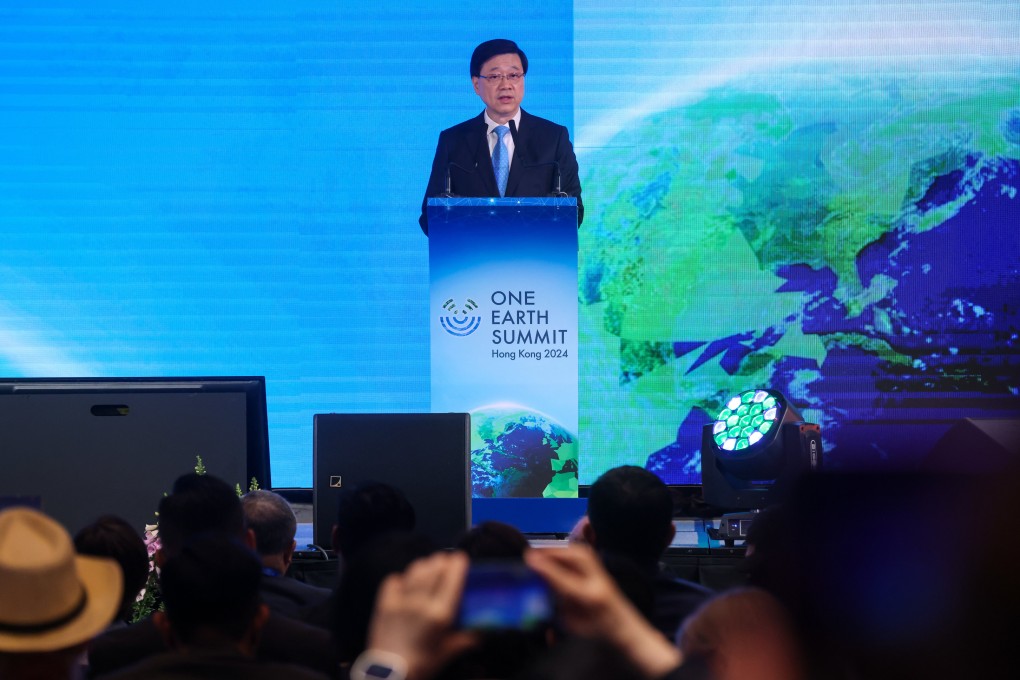One Earth Summit: Hong Kong aims to be among first to align with global ISSB sustainability disclosure standards
- Government plans to establish a clear pathway on sustainability reporting for businesses in Hong Kong this year
- Move is ‘essential’ to ‘reinforcing Hong Kong’s leading position on the international sustainable-finance map’, says financial services secretary

Hong Kong aims to be among the first jurisdictions worldwide to align local sustainability disclosures with benchmarks published by the International Sustainability Standards Board (ISSB).
“We consider it essential to showcase our commitment to reinforcing Hong Kong’s leading position on the international sustainable-finance map and solidifying the competitiveness of businesses in Hong Kong to address the global demand for sustainability disclosure,” Secretary for Financial Services and the Treasury Christopher Hui said at the inaugural One Earth Summit in Hong Kong on Monday.
“To transform this vision into concrete action, we will launch a road map within this year to provide a transparent and well-defined pathway on sustainability reporting for businesses in Hong Kong.”
The government will develop “a holistic approach” that includes phased implementation of the disclosure requirements for “all financial services sub-sectors”, including listed companies, banks, fund managers, insurance companies and Mandatory Provident Fund trustees, Hui said.

The government will also facilitate the use of technology to improve data availability and support data collection and reporting, he added.
